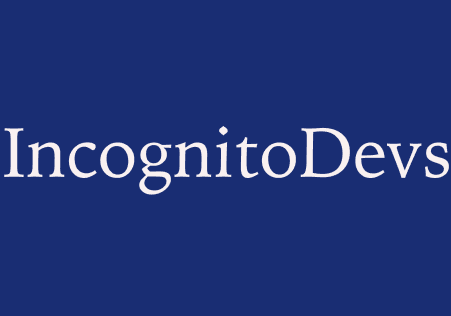CrossChain KYC Bridge
Empowering Web3 KYC: Secure, Interoperable, Collaborative with CCKB

Description
CCKB (CrossChain KYC Bridge) is essentially a system designed to make sure that people who use certain online services (like apps or websites) are who they say they are. It's like showing your ID when you enter a club to prove you're old enough. But instead of physical IDs, it uses digital verification called KYC (Know Your Customer)
CCKB is an innovative open-source infrastructure within the Web3 landscape, revolutionizing the process of Know Your Customer (KYC) verification. By harnessing the power of ERC-4671 standards, CCKB enables a collective endeavor toward establishing secure and streamlined KYC solutions. It integrates with established centralized KYC providers, providing a unique blend of flexibility for both users and platforms alike.
The core ethos of CCKB revolves around prioritizing security and safeguarding user privacy. This is achieved through the utilization of decentralized storage mechanisms and the implementation of zero-knowledge proofs (ZKPs). These measures grant users control over their personal information, enhancing trust and confidence within the Web3 ecosystem.
Introduction
Traditional Web3 platforms often struggle with KYC verification, either resorting to centralized solutions or facing inefficiencies. In response, CCKB presents a user-centric and robust alternative. It offers two distinct deployment models:
- Integrated Self-Managed Solution: Decentralized applications (dApps) have the option to utilize CCKB's open-source codebase, streamlining their KYC procedures. With this model, dApps can deploy their own Soulbound KYC NFT smart contract and integrate with decentralized storage solutions like IPFS. This empowers dApps with greater control over their KYC processes while benefiting from CCKB's infrastructure.
- CCKB Platform Managed: Alternatively, dApps can opt to join the CCKB platform as validated issuers. In this model, CCKB takes charge of managing the entire KYC process on behalf of the dApps. This includes tasks such as generating verifiable proofs and minting KYC NFTs (Non-Fungible Tokens). By entrusting their KYC needs to CCKB, dApps can focus more on their core functionalities while ensuring compliance and security standards are met effectively.
Ecosystem Collaborators
- dApps (Decentralized Applications): CCKB enables dApps to enhance their user onboarding processes by providing a standardized and interoperable KYC infrastructure. Through seamless integration with CCKB, dApps can ensure compliance with regulatory requirements while dedicating more resources to refining their core functionalities and improving user experience.
- Centralized KYC Providers: Established KYC service providers can tap into CCKB's platform to extend their reach to a broader market of decentralized applications seeking verified user identities. By leveraging CCKB's pre-audited smart contracts, integration complexities are minimized, facilitating smoother collaboration between providers and the Web3 ecosystem.
- Blockchain Developers: With its open-source codebase, CCKB welcomes contributions from blockchain developers, fostering a vibrant and collaborative community. This inclusive environment encourages innovation and ensures that CCKB remains adaptable and responsive to the evolving landscape of Web3 technologies. Through collective efforts, developers can actively shape the future of KYC solutions in the decentralized space.
Addressing the Challenge of KYC for Next-Generation Applications
The traditional KYC (Know Your Customer) processes often present significant obstacles, particularly for next-generation Web3 applications. These processes are typically cumbersome and centralized, which can impede the growth and adoption of innovative platforms. However, CCKB emerges as a solution to these challenges, offering a range of key advantages:
- Decentralized Architecture: By harnessing the power of blockchain technology, CCKB establishes a decentralized KYC infrastructure. This architecture ensures trust and transparency by minimizing reliance on centralized entities. As a result, users can have greater confidence in the integrity and security of the KYC process.
- Interoperable KYC Status: CCKB adopts the ERC-4671 standard Soulbound Tokens (SBTs) to signify verified KYC status. This interoperability is crucial as it allows users to leverage their verified KYC credentials across different blockchains and decentralized applications (dApps). This streamlined approach eliminates the need for repetitive KYC verification, enhancing user convenience and reducing friction in the onboarding process.
- Flexible Deployment Models: Recognizing the diverse needs of various stakeholders, CCKB offers flexible deployment models. Whether dApps prefer a self-managed approach or opt for CCKB's platform-managed solution, they have the freedom to choose the model that best aligns with their specific requirements. This flexibility empowers dApps to tailor their KYC processes to suit their unique circumstances and priorities.
- Privacy-Preserving ZKPs: CCKB integrates optional Zero-Knowledge Proofs (ZKPs) to bolster user privacy. These ZKPs enable users to selectively disclose specific attributes without revealing their entire KYC dataset. This granular control over data sharing enhances user privacy while still facilitating necessary verification processes, striking a delicate balance between security and confidentiality.
Infrastructure Overview
CCKB's infrastructure is built upon a modular architecture, incorporating various components to ensure the efficiency, security, and privacy of KYC processes within the Web3 ecosystem:
- Smart Contracts: CCKB employs the Soulbound Token (ERC-4671) smart contracts to manage verified KYC status. These contracts facilitate token issuance and revocation, providing a robust framework for representing and maintaining user identities securely on the blockchain.
- Decentralized Storage: To enhance security and privacy, CCKB leverages decentralized storage solutions such as IPFS (InterPlanetary File System) and Arweave. This approach ensures that hashed representations of KYC data are stored in a distributed manner, minimizing the risk of unauthorized access or tampering.
- Zero-Knowledge Proofs (Optional): CCKB offers optional integration of Zero-Knowledge Proofs (ZKPs), allowing users to selectively disclose specific attributes without compromising the confidentiality of their entire KYC dataset. This feature enhances privacy while still enabling the necessary verification processes.
- Access Control Mechanisms: CCKB implements robust access control mechanisms to ensure that only authorized entities can access specific user data. Access is granted based on user consent and compliance with legal frameworks, safeguarding user privacy and data integrity.
Benefits
CCKB's infrastructure delivers a range of benefits to both users and platform operators within the Web3 ecosystem:
- Improved KYC Efficiency: By streamlining user onboarding and simplifying KYC verification processes, CCKB enhances the efficiency of Web3 platforms, reducing friction and accelerating user adoption.
- Enhanced Security and Privacy: Through decentralized storage and optional ZKPs, CCKB prioritizes the protection of user data, minimizing the risk of data exposure and unauthorized access.
- Transparency and Trust: CCKB's open-source development fosters transparency, quality, and community collaboration, instilling trust among users, developers, and platform operators.
- Scalability and Interoperability: Designed for future expansion and compatibility with diverse ecosystems, CCKB ensures scalability and interoperability, accommodating the evolving needs of the Web3 landscape and facilitating seamless integration with other platforms and protocols.
Deployment Instructions
Getting Started
- Clone A Repository
- Install dependencies
- Run the development server



